BLACK ALUMNI ASSOCIATION NEWSLETTER: MAY 2022
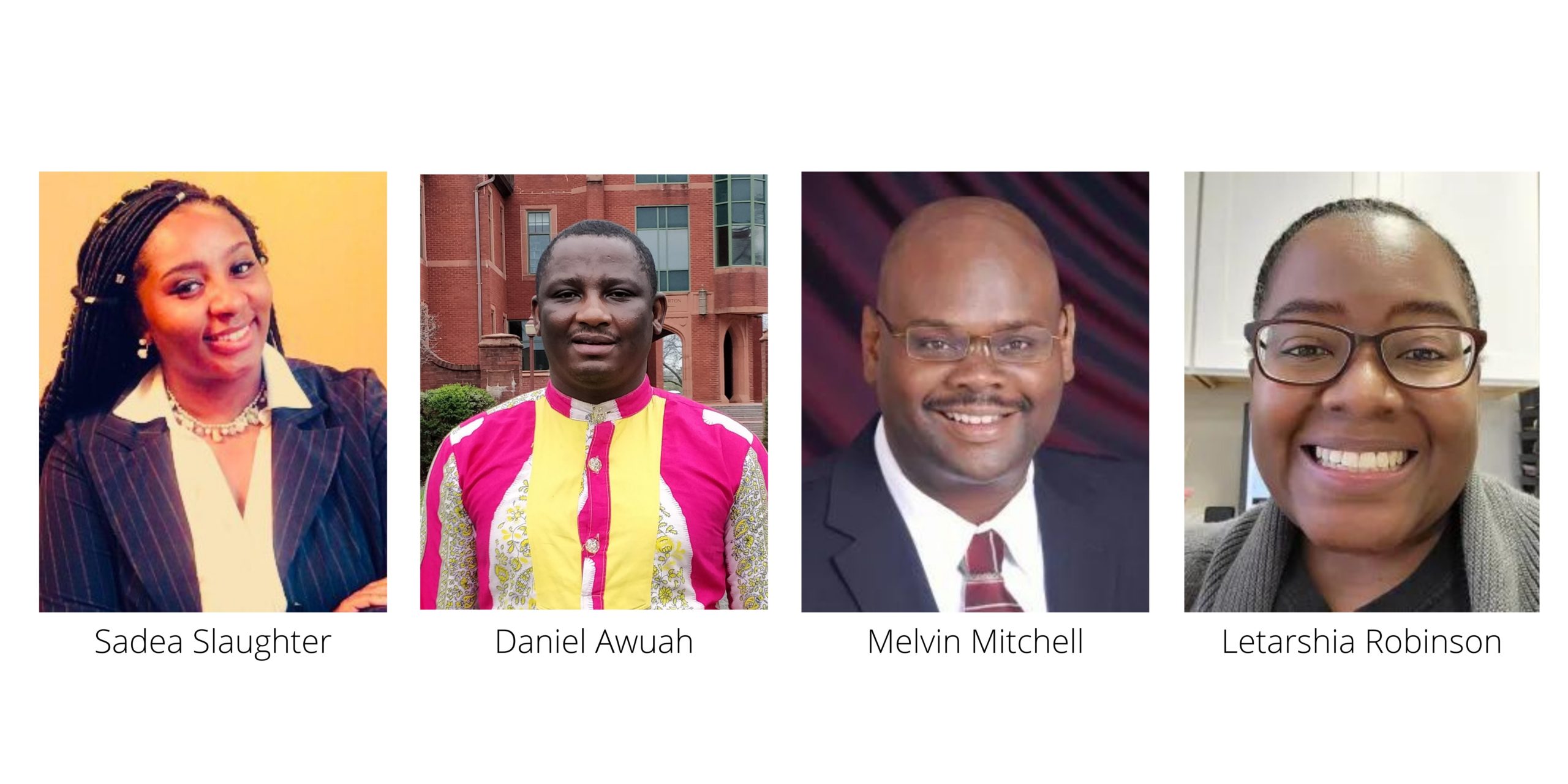
Union Presbyterian Seminary 2022 Graduates
BY MICHELLE WALKER
Vice-President for Community Life, Dean of Students, and Director, Financial Aid
It’s that time of the year again—another class is graduating from UPSem on both campuses. As always, it is my honor to introduce these new members of the BAA to you. I’ve asked them to share what was most impactful about their time at UPSem and what they will, or hope to, be doing next.
Sedae Slaughter (MACE/Charlotte)
“The most impactful course I have taken was the Summer Proctor Course and the Teaching Ministry Course with Dr. Becky Davis! I have learned so much about myself through both courses and I have been able to apply the knowledge and learning/teaching strategies in them to my everyday life. From lesson planning to cultural intelligence, I do not know where I’d be if it were not for those courses. (Honestly, there are so many I could choose from. The Human and Faith Development Course with Dr. Karen Marie Yust and the New Testament course with Dr. Carroll were wonderful as well!)
I am starting a new business outside of my nonprofit called DaeDreamers. It is a space for me to be a Spiritual Guidance, Life, and Wellness Coach. I have been a life coach on an app for the past 4 years. This will empower me to do what I love while also giving sound wisdom to those in need of it. I am also considering a part-time career as a pre-school director at Transformation Church in Indian Land.”
Daniel Awuah (MACE/Richmond)
“My most impactful course was Adult Religious Education. It exposed me to different ways of teaching adults in this 21st century. My next plan is to enter into congregational ministry and also further my education.”
Melvin Mitchell (M.Div./Richmond)
“I’ve enjoyed most if not all of the courses at Union Presbyterian Seminary, but I‘ve been most impressed with the Social Justice course taught by Dr. Rebecca Davis and Dr. Rodney Sadler. I loved the opportunity to learn directly from actual civil rights leaders. We were exposed to the thinking and the stories of both leaders from our past and present, and for that, I am forever grateful. All students should be so lucky to spend a week at the Alex Haley Farm in Tennessee and listen to the sounds of our ancestors.
Prior to coming to Union Presbyterian Seminary, I had the privilege of working with students who unfortunately struggled academically. After spending time at the Haley Farm, I am encouraged that I have been called to work assisting those students who, through no fault of their own, have wrestled with the obstacles of an educational system that has unfortunately failed them. My belief in God calls me to want to help those who cannot help themselves. This belief in God directs how I want to be treated and how I will work to ensure the fair treatment of others.”
Letarshia Robinson (M.Div./Richmond)
“The most impactful courses that I had while at UPSem were the pastoral care courses. Right after taking these courses, our country moved into lockdown status and my pastor decided to take a sabbatical, which left me in the position of caring for our congregation in the middle of a pandemic. What I learned from these courses helped me to provide congregational and community care in creative and meaningful ways, mostly online and in person.
Right now, I’m a full-time classroom teacher; however, I am open to where God is leading and calling me next. I love preaching and teaching and caring for people. It remains to be seen how God will knit these gifts together in service to God’s church and out in the world, but I’m eager and ready to give God my, “Yes”!”
A garden statue of a squirrel holding an acorn sealed my decision to attend Union Presbyterian Seminary
BY JABRIEL M. HASAN
Final Level Student UPSEM May 2022
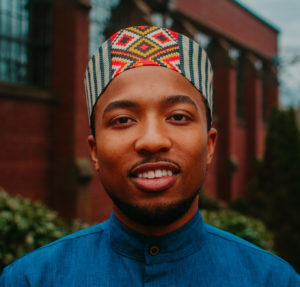
Jabriel M. Hasan
The summer of 2018 had been a whirlwind. Spring brought an unexciting transition out of a discernment process, triggering a turning point in my faith. I perceived God calling me to trust, to take a leap – one dependent on a risk to step out of my comfort zone.
A year prior, Union had entered my mind only in passing, literally, in the drive-by on Brook Road. Yet, my quest to become an academically equipped preacher and better understand the Bible through rootedness in its original languages inspired me to think about Presbyterian seminaries. Union topped my list with those gifts, as well as the Center for Womanist Leadership’s liberationist influence and the benefit of an exceptional scholarship program.
I remember beginning an application for another seminary and hearing The Spirit speak to me saying, “Why are you doing this? You already know where I’ve called you.” I had already visited on a rainy day in September, touring the frosted glass-encased chapel, which fondly reminded me of Iona. I had admired the library’s vaulted ceilings, and cherished meeting with Dr. Blount, quite by chance, for my faculty interview. I had enjoyed the complimentary lunch with a final-level student. I had generally felt a sense of rightness in the fit. I came to the front office to render farewells and, glancing to the floor at the reception desk, saw the squirrel.
That summer I had entertained angels as mentors dropped into my inbox, calling me to their offices to offer guidance on my next phase of discernment. They did not know all the details of my life at that point – or even key factors – they just sensed that I needed some good advice. My elementary school guidance counselor, Mrs. Celie Thomas, gave me a book called, The Boy Who Dreamed of an Acorn. She said to me, “This is your story, Jabriel.” I found it no coincidence that a couple months later I walked over piles of acorns during my campus visit and that the acorn envisioned for me had appeared under the reception desk.
Post-Enlightenment thinkers may call my experience “coincidental,” but I prefer rather to view it as providential. I continue to recognize that God still speaks and God’s signs and wonders persist. Every circumstance into which God leads does not always appear rational. God and God’s actions are not subject to our mental boundaries, and so an intuitive trust illuminates the spiritual path. This faith guided me spiritually even as I conducted the heady work of crafting critique and analysis papers and exegetical arguments.
There were many brief nights of sleep in which I closed my eyes only to open them again two hours later to take a test or get to class. Some of the essays I wrote facilitated full-on religious crises, one of which lasted for a solid year. Still, I find that God has a way of drawing all the ruminations back to center.
As my time at Union swiftly nears its consummation, it remains difficult to name a single teacher or class that was my favorite. All of my teachers have been phenomenal, and all of the classes were well-designed and insightful. My directed study, Healing the Soul of the South: Race, Place, and Space, which I took with Dr. Christine Luckritz-Marquis stands out, however, in that the process of studying Richmond’s racial history and its location in the Southern historical, social, and cultural context helped to ground my own sense of place in this complex metropolitan area. I began to piece together God’s story for my life in my time growing up here and living at Richmond Hill after traveling abroad. As I deconstructed historical narratives, I saw God’s construction of my own. The class ignited a deep passion to further engage Richmond’s legacy among Southern cities, particularly examining the Black community’s role.
In all things, God’s movements continue to fascinate me. I am amazed at God’s amazing capacity to deliver on the divine promises. The road to what’s next now opens again, inviting another period of holy rest, reflection, and discernment. I feel much gratitude for my time studying under the red brick towers and for the community within the quad. I wonder where I’ll find the acorn next…
You Choose – Proverbs 18:21
BY REV. VERONICA THOMAS
MSW Virginia Commonwealth University; MDiv ‘07
Death and life are in the power of the tongue and those who love it will
eat of its fruits (NRSV).
The tongue has the power of life and death, and those who love it will eat its
fruits (NIV).
Words kill, words give life; they’re either poison or fruit – You Choose (MSG).
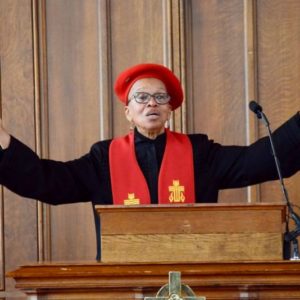
Rev. Veronica Thomas
When I was a child we jumped rope and played “Patty Cake” saying, “Sticks and stones may break my bones, but words will never hurt me.” Have you found that to be true? Sticks and stones is an English-language children’s rhyme. The rhyme is used as a defense against name-calling and verbal bullying, intended to increase resiliency, avoid physical retaliation, and remain calm and good-living.
It is reported to have appeared in “The Christian Recorder” of March 1862, a publication of the African Methodist Episcopal Church, where it is presented as an “Old Adage in this form: Sticks and stones may break my bones, but words will never break me.
However, according to the Word of God, there is life and death in the tongue. Our own words have more power to influence us than anyone else’s words. We always have the last word. Don’t speak without thinking, and don’t say things that contradict God’s words. Those aren’t easy principles to live by, but they are life and death issues.
If you have been praying and asking God for specific answers, you can affect the outcome by making sure what you say lives up with what he says. So when you speak, always keep that in mind. Our tongue can be used to give out the gospel and this will give life. Our tongue can also be used to say things that would drive people away from God, which makes it an instrument of death. The little tongue is the most potent weapon in the world.
James 3:9 declares with the tongue, we bless the Lord and Father, and with it, we curse those who are made in the likeness of God. From the same mouth come blessings and cursing. My brothers and sisters this ought not to be so. Does a spring pour forth from the same opening both fresh and brackish water? Can a fig tree, my brothers and sisters yield olives, or a grapevine fig? No more than saltwater yields fresh.
Our contradictory speech often puzzles us. At times our words are right and pleasing to God, but at other times they are violent and destructive. Which of these speech patterns reflects our true identity? The tongue gives us a picture of our basic human nature. We were made in God’s image, but we have also fallen into sin. God works to change us from the inside out. When the Holy Spirit purifies a heart, he gives self-control so that the person will speak words that please God. “You choose life or death.”
I am reminded of a man who went to dinner with a friend of his. He asked his friend to take him to a restaurant with the best possible meat selection. The friend took him to a restaurant that served tongue – all kinds of tongue – fried tongue, baked tongue, salad tongue, and other tongue. When he asked his friend why he brought him to a restaurant that served tongues as his choice for the best meat, his friend replied, “What other meat do you know that can bless you, encourage you, strengthen you, and affirm you. This same man went to dinner with this same friend and asked to be taken to a restaurant with the worst meat he could find in hopes of getting a different kind of restaurant. Again, they arrived at a place that served tongue. With a knowing look, his friend said, “Hey! What other meat do you know that can curse you, destroy you, or remove dignity from you?
That’s the ups and downs of the tongue, you choose friends, LIFE or death.
LIFE CHOOSE DEATH
-Love -Hate
-Joy -Sadness
-Peace -Insecurity
-Love Suffering OR -Inpatient
-Goodness -Evil
-Gentleness -Disrespect
-Faith -Doubt
-Meekness -Arrogant
-Self-Control -Impulse
And remember brothers and sisters in Christ, we have choices. Which one will you choose, LIFE or death? Let us respond to the word of God. Amen. So be it.
Richly Bless Students Today So They Can Be Rich in Helping Others Tomorrow
BY REV. DR. HELEN BESSENT BYRD
M.Ed., Temple University ’65; M.Div., Union-PSCE ’07; Ph.D., UConn ’72
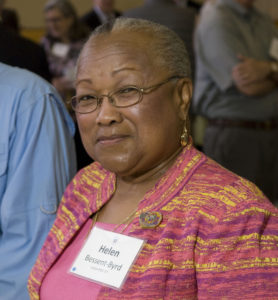
Rev. Dr. Helen Bessent Byrd
Paul told his mentee, Timothy, to teach the church in Ephesus that, “The love of money is a root of all kinds of evil (1 Tim 6:10a). In the everyday vernacular from Peterson’s Message Bible, Paul advises, “Tell those rich in this world’s wealth to quit being so full of themselves and so obsessed with money, which is here today and gone tomorrow. Tell them to go after God, who piles on all the riches we could ever manage – to do good, to be rich in helping others, to be extravagantly generous. If they do that, they’ll build a treasury that will last, gaining life that is truly life” (vv. 17-19).
Many people today possess a similar value system. They may declare that they are not wealthy but they have a plasma TV and VCR in every room of the house, every family member has their own cell phone and iPod, everyone 16 years of age and older has a car, and the family spends several weeks at a summer cottage or condo. Some of us think life is all about living affluently. The life we have here is not the “be all and end all.” There is more to come and what we experience then is contingent upon what we do in the here and now. We build our foundation while we live on this earth. Paul told Timothy to tell the believers – to tell us – don’t be arrogant or haughty, do good works, and share generously.
Remember that God wants us to live simply, so that others can simply live! Believers should share generously. What are riches worth in the end if they are not shared. A few years ago (2003) PCUSA conducted a survey in which members were asked to select two factors from a list of 10 that influenced their decision most about giving to their congregation. For the largest givers (10% or more), the strongest motivator was, “a sense of gratitude for God’s love and goodness” followed by, “wanting to contribute to God’s work in the world.” They were generous givers. Members need to be aware of what God has done for us and what God wants us to do for others. The core mission of members is to be God’s people engaged in proportionate giving and tithing. Set your hope in God and keep Paul’s message in your heart: if you live in the current age by not being arrogant, by being rich in good works, and by always being generous in sharing, you will store up treasures of a good foundation for coming age living. Remember, as Peterson tells us in MSG Bible,” Be rich in helping others, to be extravagantly generous.” We, at BAA, encourage you to give, not only tithes and offerings in churches but also give offerings to other non-profit organizations including UPSem. Be extravagantly generous so that students may adequately prepare to meet others at their point of need on the future they will face. (See the website for giving opportunities. When you give, write BAA on the line with your name if you give online and on the memo line of your check for tracking purposes!)
Guided by Love
BY DIANA WRIGHT
Union-PSCE M.Div.
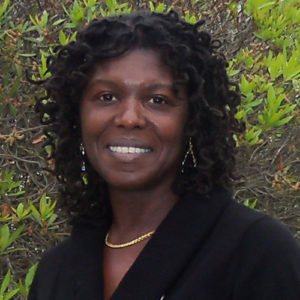
Dianna Wright
The September 2021 issue contained a photo of the billboard that said: That “love the neighbor” thing. I meant that. God.
I keep thinking about that as I do my work as Director of Ecumenical and Interreligious Relations for the Presbyterian Church, (U.S.A). Now more than ever, the call to love neighbor “as God loves us” is imperative. Finding our way to unity in God is what is called for, to heal the world.
We can no longer exist side by side struggling with our individual calls to tell the story of God/love. To be satisfied with “what has always been”, how we “do” church or our polity is boarding on idolatry. Most of us are committed to our denominations and faith traditions. Yet sometimes they prevent us from seeing the bigger picture of the God who created us to be in caring relationships with each other. To choose one system over another should not prevent us from being God’s people together. There are roughly 4,200 recognized religions, churches, denominations, religious bodies, faith groups, tribes, cultures, and movements. Yet, according to Wikipedia, there are an estimated 10,000 distinct religions worldwide, with 84% of the world’s population affiliated with Christianity, Islam, Hinduism, Buddhism, or some form of folk religion. The religiously unaffiliated demographic includes those who do not identify with any religion, atheist, or agnostics. At last count that is billions of people, all believing in love. What a glorious picture.
If I believe in Jesus, you believe in Muhammad, someone else looks up to Buddha, another Brahman, and yet another in no god at all, but we all believe in love. Isn’t that a great place to build relationships that help us care for one another and acknowledge the humanity of each person? Would I not want to do all I can to seek the welfare of the people and community where I am (Jeremiah 29:7)? Would that not, multiplied across this country and indeed the world, mean that all we do as neighbors and what governments would be required to do, would end in what Micah says is required of all of us: to do justice, love kindness and walk humbly with God? Is it not possible for you and your ecumenical and interreligious neighbors to move beyond the ordinary to create something extraordinary that may just heal the world or at least your space in it? Just think about it. There must be something you and your neighbors can do together that will support your work, energize your ministries, and help with healing the world.
In 2008, the PC(USA) affirmed its commitment to ecumenism with the ecumenical stance. It affirms our calling to:
“…at all levels seeks to manifest more visibly the unity of the body of Christ and be open to opportunities for conversation, cooperation, and action with other ecclesiastical groups. We will seek to initiate, maintain, and strengthen relations with other Reformed and Christian entities.”
In 2014, the PC(USA) affirmed its commitment to be in relationship with people of other faiths and traditions with the passage of our Interreligious Stance. It affirms that:
“God calls us to have loving relationships with people of other religions.
God calls us to approach others in a spirit of openness and trust as we follow Jesus Christ in respecting and affirming the freedom of others.
God calls us, by the power of the Holy Spirit, to work with people of other religions for peace, justice, and the sustainability of creation.
Guided on our way by the Holy Spirit, we will meet human needs, work for social justice, participate in mission and evangelism, pursue peace, strengthen families, educate for greater understanding, nurture diverse communities, value hospitality in our congregations, and respect one another in our workplaces.”
Hard work, I know, but it is our calling. So, we press on in the hopes that one day it might aid in the fulfillment of Jesus’ prayer in John 17:11, 21, 23, “that they might become completely one.”
Black Lives Matter – Rev. Dr. Martin Luther King, Jr.’s “I Have a Dream” Speech
BY WILLIAM R. FREEMAN
M.A. Goddard College; Union-PSCE, M.Div.,’01
On a cold January 17, 2022 morning, as the Nation commemorated the third Monday of the month as The Reverend Dr. Martin Luther King, Jr. Day, this writer was listening to the many accolades being given for what many people, both Black and white, call the “I Have A Dream” speech.
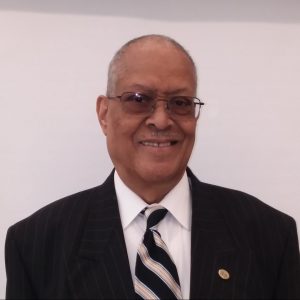
William R. Freeman
However, if truth be told, that is not really correct! I was among the estimated 250,000 people present on that historic day in our Nation’s capital who witnessed what many historians cite as the turning point in the Civil Rights Movement. Still, many people only remember “The Speech”!
However, most of today’s generation, and some people who were there, don’t know, or have forgotten, that the planners of that August 28, 1963 demonstration actually billed it as “A March on Washington for Jobs and Freedom!” This historical event was planned by a group of Civil Rights leaders known as “The Big Five”: Whitney Moore Young, Jr., Executive Director, National Urban League (NUL); Roy Ottoway Wilkins, Executive Director, National
Association for the Advancement of Colored People (NAACP); James Leonard Farmer, Jr., Executive Director, Congress of Racial Equality (CORE); John Robert Lewis, Chairman, Student Nonviolent Coordinating Committee (SNCC); and Dr. King, President, Southern Christian Leadership Council (SCLC). The actual organizers of this historical event were Asa Phillip Randolph, President, Brotherhood of Sleeping Car Porters; and his associate, Bayard Rustin, a
labor organizer and chief organizer of the March.
As a matter of fact, as my research shows, because Mr. Randolph and Mr. Rustin were very active in the labor movement as well as very influential and effective organizers of the Civil Rights Movement. Many of my friends and I were ONLY able to attend the March because of the foresight of Mr. Randolph and Mr. Rustin in getting the NUL, CORE, NAACP, and local civil rights organizations such as The National Association of Black Social Workers (NABSW), as well as local churches and other religious organizations to provide buses to bring people to
Washington, D.C. on that beautiful day in August. In addition, The March was not just about a lot of Black folk coming to Washington. If you look at photographs and read articles from that day you will see a whole lot of white faces in the crowd, especially, clergy.
Another point that is often overlooked, Dr. King was not billed as the major speaker. As a matter of fact, he was placed near the end. That day, he was not the leader he later became.
The actual list of speakers was as follows:
- A. Philip Randolph – March Direction
- Walter Reuther – UAW-AFL-CIO
- Roy Wilkins – NAACP
- John Lewis – Chair, SNCC
- Daisy Bates – Little Rock, Arkansas
- Dr. Eugene Carson Blake – United Presbyterian Church and the National Council of Churches
- Floyd McKissik – CORE (James Farmer had been arrested and was in jail)
- Whitney Young – NUL
- Several smaller speeches were made, including Rabbi Joachim Prinz – American Jewish Congress; Matthew Ahmann – National Catholic Conference, and Josephine Baker – dancer and actress
- Dr. Martin Luther King, Jr. – SCLC
- A. Philip Randolph and Bayard Rustin – Closing Remarks Including List of Demands and Pledge of Allegiance
- Benediction – Dr. Benjamin E. Mays, President, Morehouse College
As you can see, on August 28, 1963, The Reverend Dr. Martin Luther King, Jr. was listed as the tenth speaker on that platform. Today his writings, books and speeches are read by historians, students and scholars at all major institutions of higher education all around the world. Yet, in America white Republican politicians and FOX news personalities want to ONLY remember one phrase from that August 28 speech when Dr. King said, “I have a dream that my four little children will one day live in a nation where they will not be judged by the color of their skin, but by the content of their character!”
What folk, and especially these republican politicians who enjoy quoting that phrase, don’t know or don’t want to know, that the major portion of Dr. King’s speech was about “Jobs and Freedom” and the promises made to former Black slaves and their descendants. They forget about the promised check for the Negro that has bounced and come back stamped “Insufficient Funds” as America continues to build billion dollar warships and other weapons of war; they forget about the promise of “forty acres and a mule”.
Dr. King knew EXACTLY what he was saying that day. He was challenging the United States of America to live up to its stated ideals as written in The Declaration of Independence, The Constitution and The Emancipation Proclamation; and it was not until after his friend and favorite Gospel singer, Mahalia Jackson whispered, “Martin, tell them about the Dream” that the speech took on a different tone.
However, in that closing argument, where Dr. King told the world about “His Dream”, he was specifically talking about his four little children who were growing up in a segregated America. That part of the speech, and particularly that phrase, was a statement of hope. Hope in his dream that America could and would change its racist policies towards its Black citizens.
I remember in 1957, while I was a member of the track team at a college in Pennsylvania, we were on the team bus coming back from a track meet and stopped to get something to eat. I had to ask a white team member to bring me a burger, fries and a drink because the restaurant would not serve “niggers” and Jews. I remember, in 1976 taking my two young teenage daughters to Chattanooga, Tennessee to visit my uncle who drove us to the top of “Lookout Mountain” where the toilets and water fountains still had that space that used to read “colored” and “white”. To understand what this meant to Black folk, the water fountain for whites was at normal height, the other one was lower; like what we now have at some places for little children.
Thank God, discrimination is not that overt today. However, the Presidency of Barack Obama followed by the election of Donald Trump seems to have unleashed all this “pent-up animosity, hate and jealousy.” Michael Paul Williams, Opinion Columnist for the Richmond Times-Dispatch, wrote an article in the January 10, 2022 edition of that newspaper that should be mandatory reading for everybody who wants a better understanding of what Dr. King’s usage of “that phrase” was all about.
Racism in America has always existed. It’s even written into the Constitution of the United States, Article 1, Section 2, Paragraph 3 states that, “Indians not taxed, and three-fifths of all other persons” are excluded from being counted as citizens.”
August 28, 1963 will always remain a day in the history of this country when Black, white, yellow, brown, male and female, came together for one day to live out those words in the second paragraph of The Declaration of Independence, “We hold these truths to be self-evident, that all men are created equal, that they are endowed by their Creator with certain unalienable rights, that among these are Life, Liberty and the Pursuit of Happiness.”
As candidate Senator Barack Obama said in a speech on March 18, 2008, and as Dr. King alluded to on August 28, 1963, Black people in this country still hope and dream of a time when America will live up to those words in the preamble to the Constitution, “We the people of the United States, in order to form ‘A More Perfect Union’ . . .”








